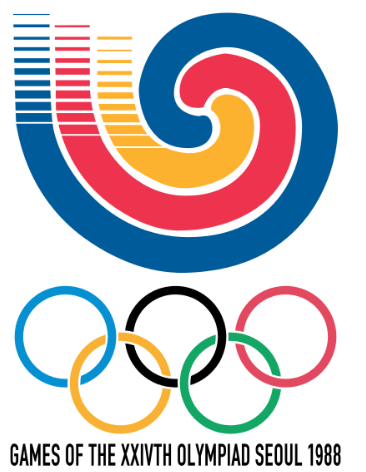To recall 1988 Seoul Olympics
By Park Moo-jong – The Korea Times
Finally, it’s time for the Olympics to beat the heat of this scorching summer.
The 2016 Summer Olympics, ironically during the winter season of the host city of Rio de Janeiro, will kick off its 17-day run at 8 o’clock tomorrow morning (Korean Standard Time), amid global controversies.
The lead-up to the Games of the XXXI Olympiad or Rio 2016 has been troubled by controversies — health concerns surrounding the Zika virus, security, pollution and the instability of the host, as well as the doping scandal involving sports power Russia.
The word, Olympics, always reminds us, Koreans of the 1988 Seoul Olympics that definitely provided the momentum for positive changes in the course of not only South Korea but world history in late 20th century.
We did it 28 years ago. A small divided country in the Far East, which has still been technically at war with the warmongering communists only 40 kilometers away from its capital, surprised the world by making the Seoul Olympics one of the most successful global sports festivals in history.
The national unity and people’s voluntary cooperation and participation were instrumental in the then unprecedented success of the Games. We remember well that even the pickpockets took time off during the sporting extravaganza.
Nature was no exception in helping make the global festival a tremendous success: typhoons usually hit the peninsula in September, the month of the Games, but 28 years ago, not a single one visited.
By bringing together the rivals of the then Cold War “Beyond Barriers” as the Seoul Olympics slogan put it, it heralded the collapse of the then Eastern block and the fragmentation of the Soviet Union.
There had been no other time when South Korea’s capital had so seized the world’s attention. Clearly proving the naysayers wrong, we showed our full potential, forcing people across the globe to admire our “can do spirit.”
Watching Rio 2016 through the summer night, the Korean people feel a pang of regret, recalling the events of 28 years ago, in contrast to the grim reality the nation is now confronted with.
Where has all the glory, order, kindness and “can do” spirit foreigners so admired us for gone?
The disgrace of the triumphant slogan “Beyond Barriers” lies at the existence of too many barriers…the barrier between the haves and haves-not, the barrier between conservatives and progressives, the barrier between the ruling and opposition parties and the barrier between the older and younger generation.
The Republic of Korea is reaching a crisis amid an acute split in public opinion over pending questions as keywords of the latest news suggest – the all or nothing conflict over the deployment of the THAAD system and China’s threats about it, incompetent bureaucracy, greedy politicians, corruption scandals involving high-ranking officials and a series of outrageous accidents.
Nobody would dispute the stark judgment that we failed to inherit and develop the spiritual assets we accumulated from the Seoul Olympics.
Both the national leaders (lacking leadership) and citizens (who do not care for their fellow humans) are caught up in an illusion that their nation had risen to the rank of advanced country overnight but popped up too early, not to mention the foreign media’s quipping about us.
Politicians, especially the “excellencies” lawmakers who are the very target of public criticism, are adding insult to injury, devoting themselves only to political feuding as they put aside the mounting piles of national problems ahead of next year’s presidential election (on Dec. 19).
The purge against corrupt politicians and officials is absolutely urgent and the implementation of the “Kim Young-ran Law” or anti-graft law is quite timely, but the people doubt of its effectiveness as the legislators are not affected by the “stern” law provision.
The National Assemblymen are wasting time and the taxpayers’ money without doing anything for the people, only being obsessed with their personal and parties’ political interests.
They have to recall that the conflicting politicians declared a ceasefire 28 years ago to help stage the Seoul Olympics successfully and it worked. Such a consensus would lead to national unity.
A variety of threats against the Olympics proves paradoxically the grand influence of the Olympics. Pierre Coubertin (1863-1937), a French educator and historian considered the father of the modern Olympic games, said, “Olympism seeks to create a way of life based on the joy found in effort, the educational value of a good example and respect for universal, fundamental, ethical principles.”
As the founder of the International Olympic Committee indicated, all the Olympic participants needs sincerity, morality and courage to overcome temptation of depraved desires. These elements also decide our future outside stadium.
From this point of view, all the Olympic contestants are warriors fighting for a brighter future.
Baron Coubertin also said, “The most important thing in the Olympic Games is not to win but to take part, just as the most important thing in life is not the triumph but the struggle. The essential thing is not to have conquered but to have fought well.”
Rio 2016, due to open at opposite side of our nation on the globe, may be a golden chance for Koreans to consider what they have to do now to help the nation tide itself over this crisis.
I hope that our athletes will return home after “fighting” well and Rio 2016 will follow in the steps of Seoul 1988 by overcoming all the difficulties the whole world is concerned about.

























































